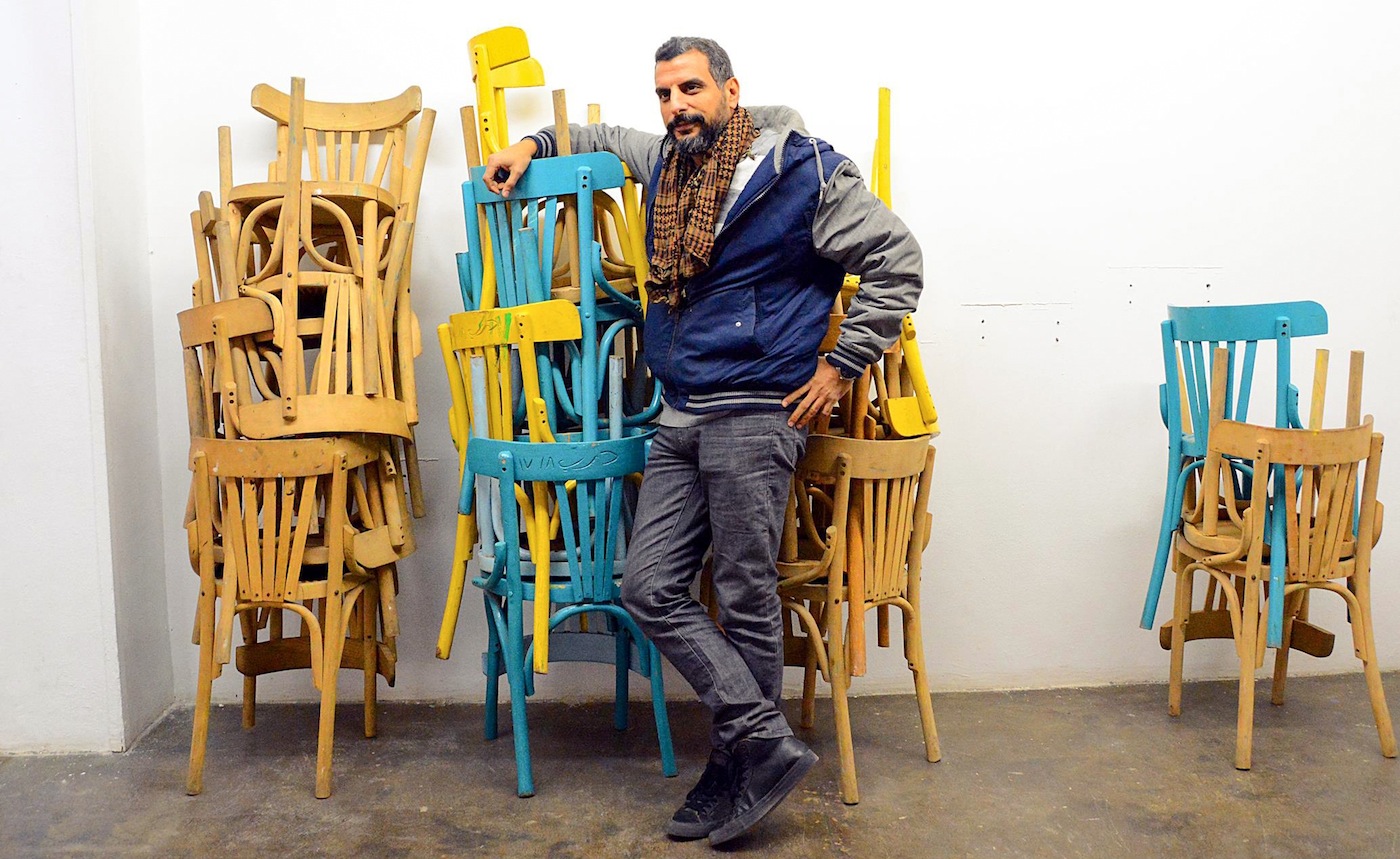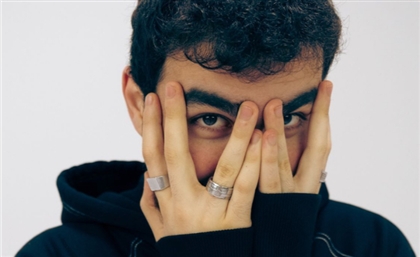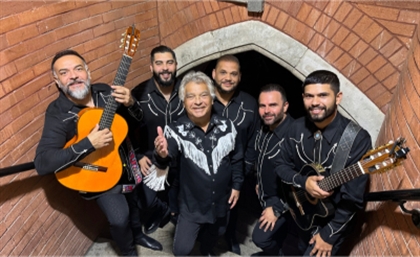Karkadan Says: A Musical Project That'll Save Your Soul
Following his Cat Stevens tribute performance at Darb 1718, Karkadan Says - musical project and one-man band - sits down with Sanabel al-Najjar for a chat about materialism, human nature, and why it really is a wild world.

Oftentimes, we get stuck in our daily routines with their everyday stresses and concerns. Get up from bed, shower, brush your teeth, get dressed, get into your car, go to work, come back from work, have lunch, go on the Internet, sleep. And in this tasteless burning of our days, we sometimes lose touch with what is important and we make no space for our innately hungry minds to explore beyond the tedious everyday occurrences in our lives and in the lives of those around and affecting us.
Music is one of those media that provokes our minds and wakes them up, allowing us to build a connection with the divine state of being instead of being glued to some noncommittal screen, ‘liking’ regurgitated digital rubbish. It is not out of the blue that Nietzsche said, "Without music, life would be a mistake."
Sitting on Darb 1718’s rooftop on Wednesday night, sipping on some hot tea under the starry sky, feeling refreshed by the crisp breeze passing by, with Cat Stevens’ music played by Karkadan Says wrapping the air with inner warmth, Nietzsche’s words resounded in the space.
Kareem el Ghalid, the standalone member of Karkadan Says, established the music project in 2011. Karkadan, meaning rhinoceros in Arabic, was chosen as the name of El Ghalid's band in reference to his typical musical repertoire; ‘fresh-blooded’ music mixture of Oriental tunes fused with Egyptian cultural elements, sung in Arabic to Oriental and Rock instrumentation.
A little prior to Karkadan Says’ concert, I got the time to have a little chat with the very youthful middle-aged artist who talked to me about his project, Cat Stevens, and yes, life. 
The musician’s interest in music started when he was only eight years old and being tutored in piano classes until the age of 18, after which he picked up the guitar. He also experimented with vocals, and broke his fear of venturing into singing at certain ranges, in English as well as Arabic. He believes in the separation between El Ghalid as a person with his private personal life and family, and that of his music persona - Karkadan Says. El Ghalid tells me that he chose the animal, dubbed ‘master of the desert’ because of the "philosophical, physiological, as well as societal dimensions that really reflect what I would like to say accurately. And even if you write it in Arabic, the word looks just like the animal!" he humorously adds.
When I ask El Ghalid whether it was difficult to merge between a so-called Western genre of music with Arabic (at times even fos7a) lyrics he says, "not at all. Simply, this combination is actually me. It is very easy to express yourself if you have tools."
"However," he adds, "artists don’t just come out of nowhere. They are affected by what surrounds them and then come up with something new. So, you see, the artist is really made up of two entities. There is the inner self, which includes feelings, thoughts, and conflicts, and then there is the interaction with the external world, which actually prompted that artist to pursue that kind of art; thus, the variation of arts."
I ask the obvious question that many music fans are probably (happily) wondering about: why Cat Stevens? "When I was about 20 years old, and while performing one of Cat Stevens’ songs - I was only performing two songs at the time: Father and Son and Moon Shadow - someone who was in direct contact with Cat Stevens came up to me and said 'you’re Cat Stevens!’" El Ghalid denied being that similar to Cat Stevens as he did not see it, but Cat Stevens’ contact assured him that he was, and told him that he felt as if it was Cat Stevens who was performing in front of him. "But I really have always believed in people’s likeness to each other and their homogeneity so I told myself, why not?" he says. After that, El Ghalid began listening very closely to all of the artist’s works and was extremely appreciative of Cat Stevens’ call for inner peace.  "Music is purely a humane language that is inner and understood by all people, regardless of their background. You don’t have to be taught how to be affected and moved by music. All kinds of art, actually, have a greater impact on our humanity than any other factor, including money, authority, or even knowledge’.
"Music is purely a humane language that is inner and understood by all people, regardless of their background. You don’t have to be taught how to be affected and moved by music. All kinds of art, actually, have a greater impact on our humanity than any other factor, including money, authority, or even knowledge’.
El Ghalid speaks from the heart about the crisis that human beings face nowadays - materialism. He describes how many people associate love, success, and even their choice of careers with money. "This bitter double-standard perspective has plagued everything around us. This detachment from our human nature means that we need to let go of the influences that make us glorify materialism and go back through music and other forms of art," he says.
Sitting on a vintage wooden chair under warm lights on the roof, Karkadan Says played songs such as Changes, Wild World, If You Want to Sing Out, and others, while people talk softly to each other, sitting on big colourful cushions, feeling pleased that there is life in them, unwilling to bend to a double-standard world.
Yes, baby, it’s a wild world, but one that is meant to be discovered and ventured into instead of boiled down to paper bills, as Karkadan Says to us.
For more about the artist, you can visit his Facebook page.
Photo shoot by @MO4Network's #MO4Productions.
Photography by Osama Selim.
























